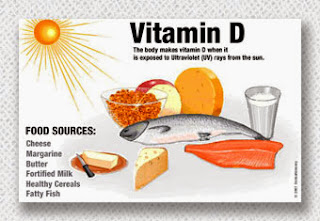Sun exposure has many health benefits beyond just vitamin D. Ancient time therapist, yogic and many cultures use sunlight to heal all kinds of illness and improve our health in many ways. Best time for taking sunlight benefit is early morning before 9:00 AM or evening after 4:00 PM. Sunlight helps your health in many ways-
Top Health benefits of Sunlight are-
Sunlight is Sufficient Source of Vitamin D
The most notable benefit of sunlight exposure is its ability to boost your vitamin D supply in your body. Vitamin D is produced by the skin's response to UV radiation primarily through sun exposure, which affects 10 percent of the genes in the human body. In a study, researchers did vitamin D screenings on approximately 500 children admitted to a pediatric hospital ward for 12 months. Two in five children were found to have a vitamin D deficiency, which was linked to severe illness and a longer hospital stay. A healthy supply of vitamin D promotes bone growth and prevent illnesses such as breast and colon cancer, inflammation, multiple sclerosis, seasonal disorders, and depression. 15-20 minutes sun exposure provides whole day requirement of vitamin D.
Sunlight Lowers Blood Pressure
Skin that is exposed to ultraviolet (UV) rays release a compound, nitric oxide, that lowers blood pressure. In a recent study conducted at Edinburgh University, dermatologists studied the blood pressure of 34 volunteers under UV and heat lamps. In one session, the volunteers were exposed to both light sources and in the other session, the UV rays were blocked so only the heat affected the skin. The results of the study showed a significant drop in blood pressure after exposure to UV rays for an hour but not after the heat-only sessions
Sunlight Enhances Your Mood
Regular sunlight exposure can naturally increase the serotonin levels in your body, making you more active and alert. In an article published by the National Institutes of Health (NIH), exposure to bright light is seen as an approach to increase serotonin without the use of drugs. The positive correlation between the development of serotonin and the hours of sunlight during the day was seen in healthy volunteers. In a sample size of 101 healthy men, the research found that turnover of serotonin in the brain was lowest during the winter whereas the production rate of serotonin was highest when the subjects stayed in the sunlight longer.
Sunlight helps in Better Night's Sleep
Your amount of daylight exposure is vital in maintaining a normal natural sleep rhythm of the day night, called a circadian rhythm. These rhythms include physical, mental, and behavioral changes that follow a 24-hour cycle and respond to light and darkness in the body's environment says the National Institute of General Medical Sciences (NIGMS). The sleep-wake cycle is contingent on morning sunlight to help you sleep at night.
Sunlight can ease depression
There has been a lot of research on the link between sunlight and mood. One solid study found that sunlight actually increases levels of a natural antidepressant in the brain. On sunny days, the brain produces more of the mood-lifting chemical serotonin than on darker days and helps in reducing symptoms of depression.
Sunlight contributes to bone health
It is well known that vitamin D stimulates the absorption of bone-strengthening calcium. The process of vitamin D manufacture begins when sunlight changes the 7-dehydrocholesterol in the skin into vitamin D3. Emerging research is showing a direct correlation between both bone density and blood levels of vitamin D3. Higher blood levels of vitamin D3 are associated with a lower rater of fractures of virtually all types; lower blood levels of vitamin D3 are associated with a higher rate of fractures of all types.
Sunlight may help prevent cancer
It does not just plant that metabolize sunlight. Humans do too. Through a complex process, our bodies turn sunlight into life-giving Vitamin D. The connection between vitamin D deficiency and cancer was first made by Drs. Frank and Cedric Garland from the University of California, San Diego. After finding that the incidence of colon cancer was nearly three times higher in New York than in New Mexico, the Garland brothers hypothesized that lack of sun exposure, resulting in a vitamin D deficiency, played a role. Research now indicates that being deficient in vitamin D increases the risk of many cancers, especially breast and colon. vitamin D supplementation produced a dramatic reduce the risk of developing any form of cancer.
Sunlight kills bad bacteria
Sunlight Know for his antibacterial power from long as Nobel Prize winner, Niels Finsen discovered in 1903 that German Soldier after World War 1 knew of the healing effect of sun exposure as they used sunlight to disinfect and heal wounds.








